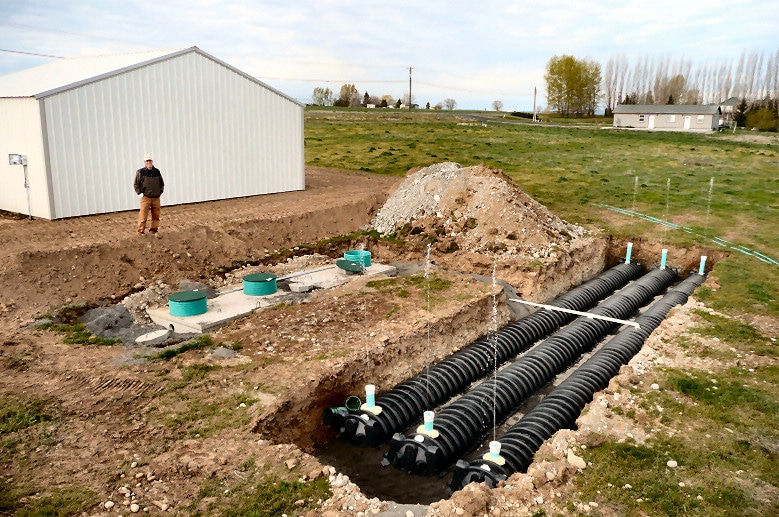
Many outlying rural sections of the country are located in areas far away from city sewer hookup. They are forced to install on-site waste water treatment systems capable of treating sewage generated by the home.
On-site waste water treatment systems are designed and constructed to specifications determined by the engineered design. On-site septic systems typically consist of a septic tank that will usually have a capacity of 1000 to 2500 gallons. The drain field is also designed to the engineered specification with a typical drain field consisting of approximately 250 feet of lateral drain field.
• Maintaining a septic system – Maintaining a septic tank is the most important aspect of having a septic system. Adding a beneficial bacterial septic tank treatment is crucial in preserving the integrity of a septic system. Maintain a septic system with monthly septic tank treatments can extend the life of a septic system by decades.
• Over taxing a septic system – The over use of a septic system is probably one of the most common causes of septic system failure. Excessive showering and washing of cloths will all play a part in the over loading of a septic system. Re routing of water is a great idea. Consider constructing a grey water system can save a heavy water load on a septic system.
• Tree roots can destroy a system – Never plant on or near a septic tank drain field. Tree roots can destroy a septic system. Tree such as bamboo and the infamous weeping willow can infiltrate a septic system in just a few years with disastrous effects.
• Never dispose of sanitary napkins in a septic system – Toilet paper and human waste are the only things that should be flushed down a septic system. Plastic, garbage, cigarette butts and cat litter etc should never be flushed down a septic system. These types of products will never digest creating backups and clogs.
• Rain water runoff – Rain water runoff can saturate a septic system in just a few minutes of heavy rain. Divert rain gutters and down spouts away from septic systems and drain fields.
• Antibacterial Soaps – Antibacterial hand soaps and toxic cleaners will destroy the beneficial bacterial essential for the operation of the septic. Solid waste that is usually digested by healthy bacteria is forced out into the drain field where the solid matter converts into a bio-mat clogging the 1b and 2b crushed gravel of the septic system drain field.
Maintaining a septic system completely depends on the homeowner and their ability to set in place a septic tank and drain field maintenance treatment schedule. Maintaining a septic system will save you the homeowner thousands in repairs providing uninterrupted service and years of problem free service.
